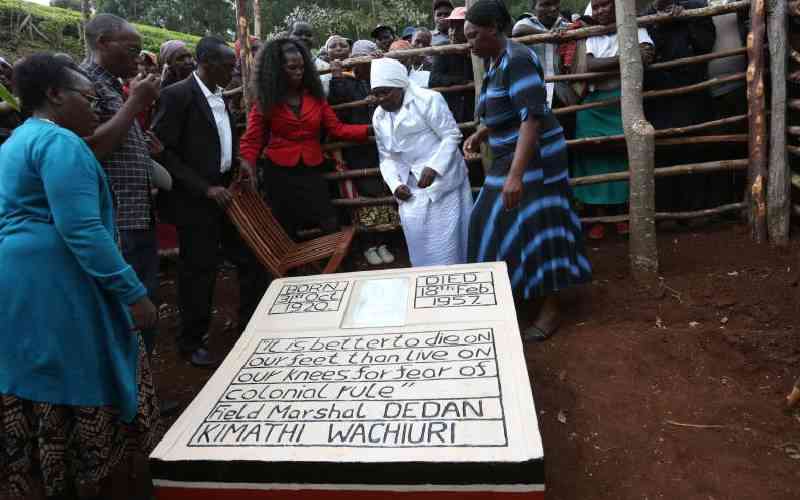×
The Standard e-Paper
Stay Informed, Even Offline

Even after sacrificing her youth to free her motherland in a cause that ultimately cost her a husband, Mukami Kimathi almost lost her four children to some schemers from India 57 years ago.
Mukami, the widow of freedom icon Dedan Kimathi, had to mount a spirited campaign to save her children before they were flown to India, where some conspirators planned to keep them forever.